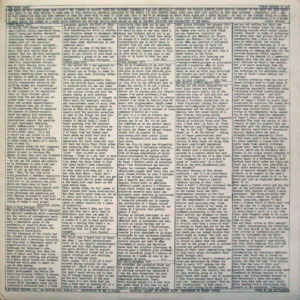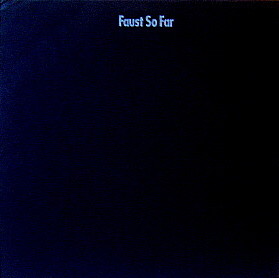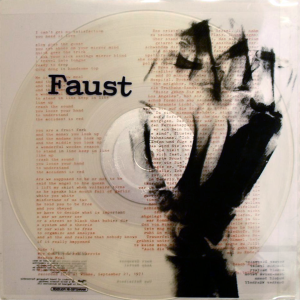Faust – The Faust Tapes Virgin VC 501 (1973)
Faust was never a “commercial” sort of band. But following complaints of low sales they switched to a new label and producer Uwe Nettelbeck struck a deal with a new label, Virgin, where he gave them Faust recordings for nothing and the label released them at a discount price (a full LP for the price of a single) aimed at the British market. This proved to be boon for the band, with the album becoming their best-selling and most widely known by a substantial margin. It is stitched together from bits and pieces of recordings into two seamless “suites” of sort.
As fragmentary as the recordings are, and despite the jumps between disparate styles, bits of highly melodic pop appear with some regularity — like a the catchy, rhythmic blasts of fuzz guitar that begin about seven minutes into side one, which provides a mini-song that irreverently confronts a state of mechanical, detached and indifference. I once told someone that the band Deerhoof‘s album Reveille sounded like The Beatles had replaced Paul McCartney with Yoko Ono. Regardless of whether that held in that case, it isn’t an entirely bad description of The Faust Tapes. Certainly, casual pop listeners will be put off. Yet that is kind of the point. This is music that pays no deference to commercial, mainstream pop/rock music, even as it accepts that sort of music on the same terms as everything else. The resultant amalgam of sounds allows the music to shift from the dour to the sprightly and back, and back again, with the impression that the listener is hearing only the best bits. Or not. Suffice it to say, there is an impudence at work that is ready and willing to clash with the status quo while at the same time winning over adherents with a likable goofiness and almost absurdist humor. Definitely an important (however unlikely) statement from one of the bands that fought the good fight.
For more, read an excellent review here.



